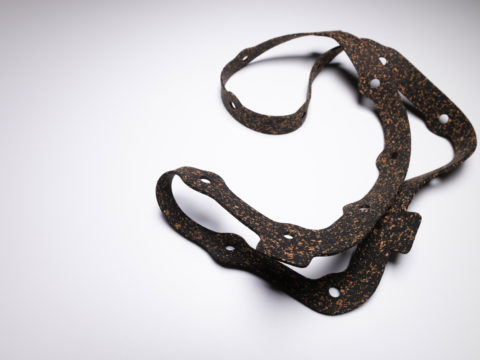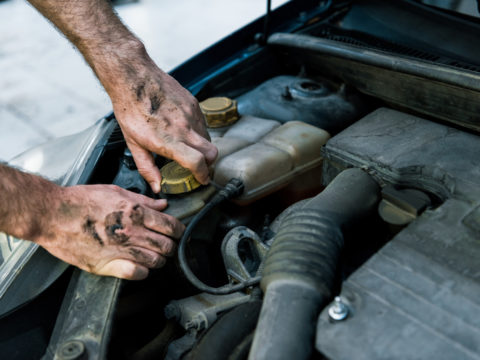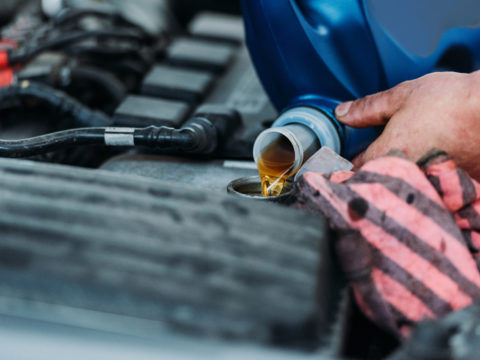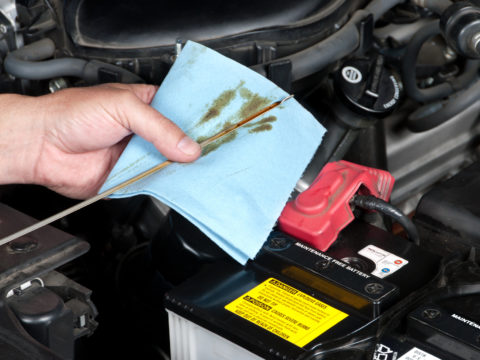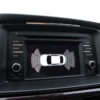Unfortunately, oil spilling on your car engine is a common occurrence. You may casually add oil to your car engine then something distracts you and causes a spill on the car.
In such circumstances, you may panic and have no idea what to do.
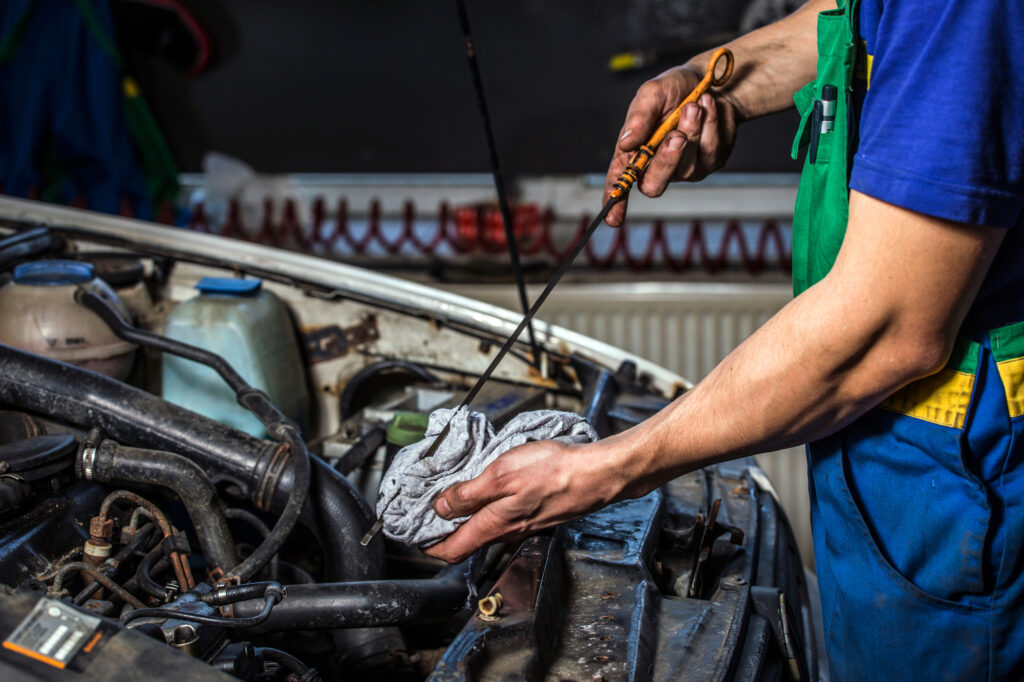
Don’t worry. Clean off the spilled oil using rags and a degreaser to break down the spillage. After a short cleaning session, you will be out of the woods.
Let’s explore what to do when facing an oil spillage on your engine.
Contents
Is Spilling Oil on the Engine Bad?
It may not seem like a big deal but spilling oil on your engine has terrible effects. The spillage could ruin your car components and lead to catastrophic outcomes that could endanger your safety and your loved ones. As such, it is best to deal with oil spillage on your engine as soon as it appears.
What Happens if You Spill Oil on Your Engine?
On the face of it, spilling oil on your car engine has no immediate consequence. It doesn’t directly ruin your car components, as it only leaves an unsightly mess that is difficult to clean.
Nonetheless, spilled oil on your engine could lead to dangerous outcomes.
The oil spillage could affect essential car components such as the serpentine belt, which drives various peripheral devices and allows you to steer your vehicle.
Since oil is a lubricant, spillage on this component could cause it to slide off as you drive.
Consequently, you will lose control over your vehicle and could potentially cause a fatal accident. Therefore, it is a safety concern that requires immediate attention.
Similarly, oil is a highly combustible fluid that could ignite on provocation. Therefore it is a fire hazard that could cause significant damage if a fire is lit within the vicinity or if you start your car.
Can Spilling Oil on the Engine Cause a Fire?
The short answer is yes, spilling oil on your engine can cause a fire. Although engine oil is not flammable, its combustible nature means it could catch fire when exposed to certain conditions.
When excessive oil spills on the outside of your engine, it is exposed to a lot of heat and friction when you turn on your car.
The heat from your vehicle’s metal components could ignite the spilled oil and cause a fire. This enormous risk could ruin your car components and compromise your safety.
Imagine casually driving, and smoke suddenly starts coming out of your bonnet. It could have catastrophic outcomes.
Will Oil Spilled on the Engine Burn Off?
While oil spills on your engine are considered a fire hazard, engine oil is designed to resist catching fires quickly. Therefore, when you unintentionally spill a little oil, it slowly burns off when your engine starts running without causing a fire.
Heat and friction from the running engine will break down the spilled oil, causing it to break down and go out on its own in a short period.
Although there is a minimum risk of your engine parts getting damaged from the oil burn-off, there is a risk of fire spreading to essential components if your engine is covered in oil.
The hot steel surrounding the engine and electrical sparks could ignite the combustible fluid and cause a fire. You are safe if the oil spillage avoids contact with these catalysts.
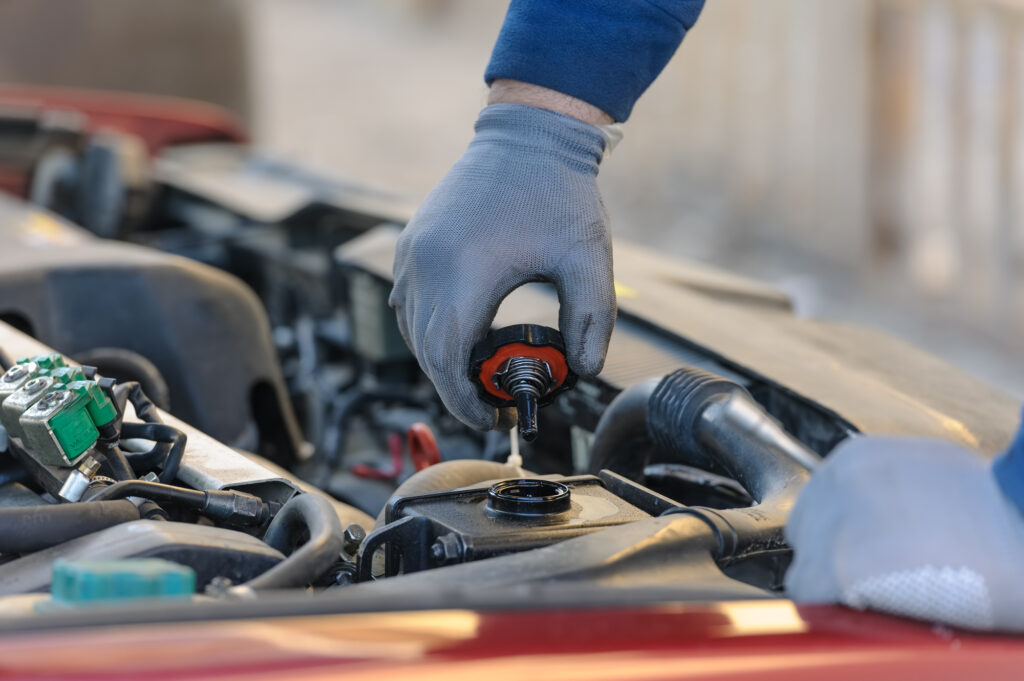
What Do You Put in Spilled Engine Oil?
When you notice spilled oil on your engine, the first step is to place a highly absorbent material on the spillage. You could place paper towels to soak up the fluid.
Alternatively, you could use sawdust, corn starch, or cat litter to clean up the mess. Place the absorbent material on the spillage and let it sit for a couple of hours. Once the clutter is thoroughly mopped up, collect the material and dispose of it in the trash.
If the spilled engine oil makes it to your driveway or garage floor, you must act as soon as possible since asphalt and concrete easily stain with oil. Soak up as much fluid as possible using a rag or paper towel and brush off the remaining oil using a mild soap water solution before the oil sets in.
How To Clean spilled Oil from An Engine
Once you notice an oil spillage from your engine, cleaning it up as soon as possible is essential to avoid damaging your car components and creating a fire hazard.
Here are a few steps to guide you through the process.
Tools and equipment needed
Gather essential cleaning supplies, including:
- protective gloves
- paper towels or rugs
- Detergent
- Water
- A degreaser
Step 1
Don your protective gloves and use paper towels or a rug to soak and clean up the oil spillage. Ensure you absorb as much spillage as possible and look for hidden pools of oil, especially around the electrical systems.
Step 2
After soaking up the oil pools, use a mild detergent and water solution to clean the area. While cleaning, avoid getting puddles of water into the car components. Use your rug to clean off the spills.
Step 3
The next step is to use a can of degreaser to break down the oil that the detergent solution failed to clear. The degreaser cuts through the oil stains and gives a more thorough cleaning.
Step 4
Rinse the area of any cleaning fluids and ensure the surfaces are completely dried up.
Step 5
Once you are confident all the oil spillage is cleaned up, start your car and monitor how it operates. You have nothing to worry about if you hear a squealing noise or smell burning oil.
However, turn off the vehicle immediately if you see smoke rising from the engine.
How Long Does It Take for Spilled Oil To Burn Off the Engine?
The time it takes for an oil spill to burn off your engine depends on various factors, including the spillage volume and your vehicle’s motion and activities.
If there is a considerable amount of spilled oil, it will take longer to burn off than if there was a little spill. Similarly, your vehicle’s engine activity plays a part in determining how long the spill will take to dry off.
If your car is turned on for an extended period, it will take less time to burn off the oil due to the heat produced in the engine.
It will generally take 5-30 minutes or a couple of hours for the oil to burn off completely.

